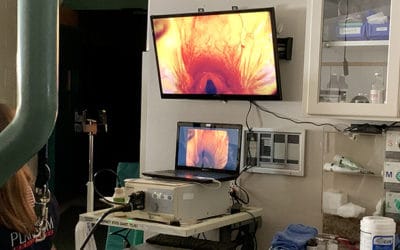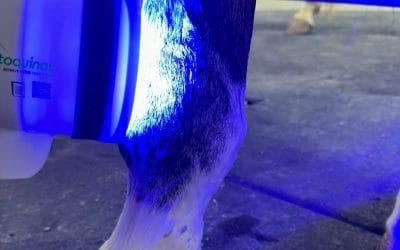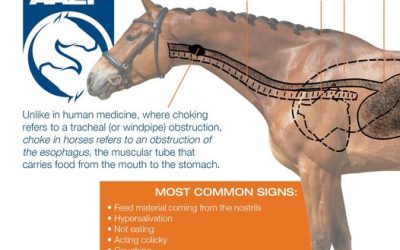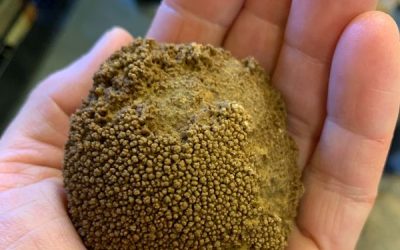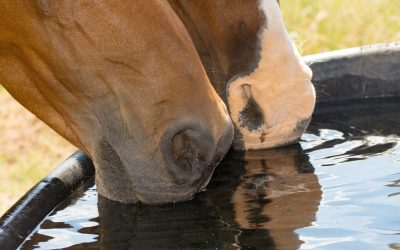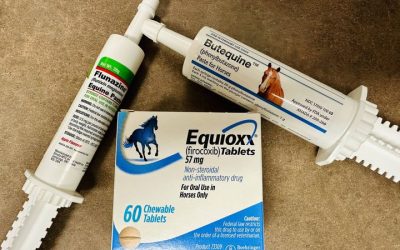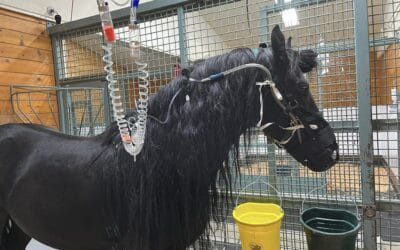Diagnosis and treatment of infectious diseases and chronic conditions
Equine internal medicine encompasses all things not involving surgery or orthopedic work. This leaves problems involving the lungs, heart, brain, spinal cord, intestinal tract, urinary tract (kidneys and bladder), internal organs (liver, pancreas, and spleen), and endocrine system. These problems can include organ failure, bacterial and fungal infections, infectious diseases, internal parasites, cancers, toxicities, equine metabolic syndrome, insulin dysregulation, pituitary pars intermedia dysfunction (PPID, or equine Cushing’s disease), and congenital problems. Some of the more common cases we see include severe pneumonia, liver disease, kidney disease, and neurologic problems. Our neonatal intensive care unit falls under the umbrella of internal medicine as well.
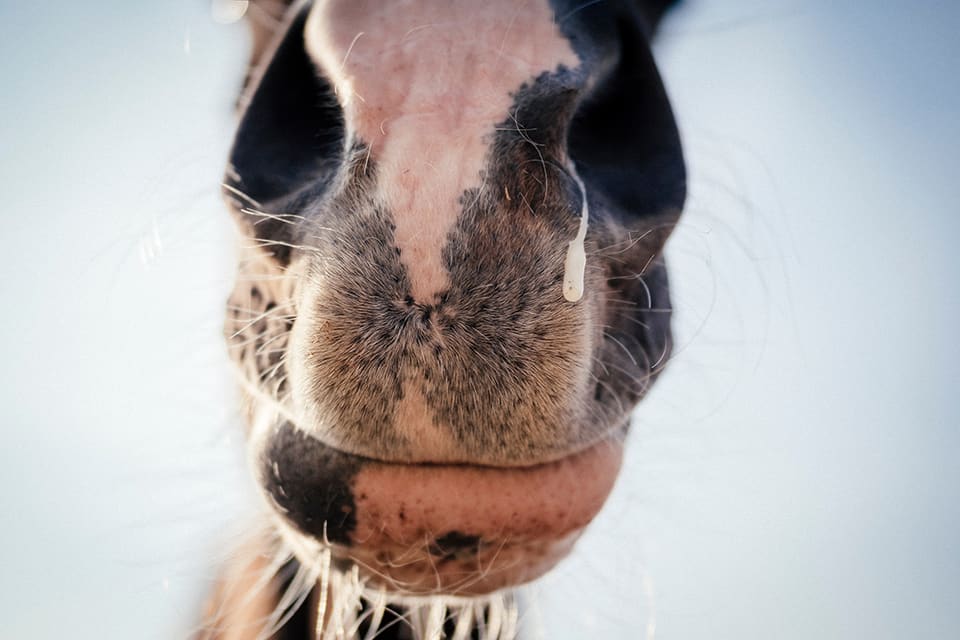
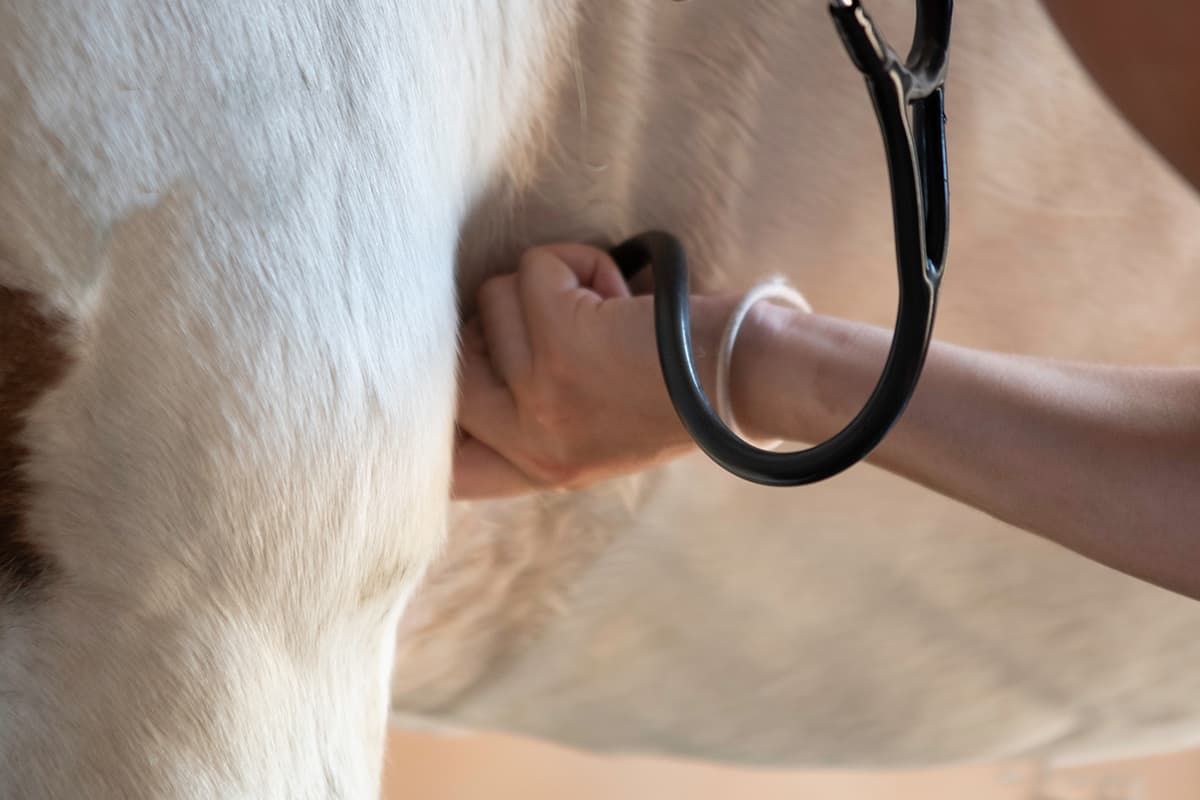
Related Diagnostics and Treatments
Tonometry
Tonometry is part of a comprehensive equine eye / ophthalmic exam We offer advanced diagnostics for equine ocular (eye) injuries and diseases as part of our ophthalmology services in Central Oregon. One of our tools is a Tonovet tonometer, which veterinarians use to...
Videoendoscopy and Gastroscopy
Do you suspect problems from your horse’s throat to its airway to its lungs? Respiratory videoendoscopy might offer the answer. Endoscopy images your horse’s airways with a video camera and allows us to identify problems, take diagnostic samples, take bacterial...
Ultrasonography
Our clinicians use ultrasound extensively for reproductive work and to diagnose a variety of injuries and conditions. Our team has received specialized training in both performing ultrasounds and interpreting results. Ultrasound allows us to look at different internal...
Select Related Diseases and Conditions
We’re Seeing Great Healing Results With Phovia!
This fluorescent light system aids in skin regeneration.
Choke in Horses
The term “choke” in horses refers to an obstruction of the esophagus, a soft muscular tube that leads to the stomach.
Bladder and Kidney Stones in Horses
In Central Oregon, we’re unlucky enough to have a relatively high incidence of bladder and kidney stones in horses. We suspect it has to do with the mineral content of our groundwater.
Heat Stress in Horses
Hot weather presents challenges for horses, especially during exercise.
Kidney and GI Effects of NAIDs in Horses
Medications like Equioxx and Banamine are frequently used in horses to help ease musculoskeletal aches and pains, or to treat colic pain, but did you know that they can be harmful to your horse’s kidneys and gastrointestinal tracts in some cases?
How to Help Horses Exposed to Wildfire Smoke
Wildfire season is back, so it’s time once again to consider how to protect your horse from respiratory damage caused by smoke inhalation.
Strangles Testing: Why Is It So Darned Complicated?
When it comes to diagnosing strangles (Streptococcus equi subsp. equi), we can choose from four diagnostic testing methods. But why do we recommend the testing we do? Guttural pouch lavage. This is the gold standard diagnostic for strangles testing. Strangles-causing...
Case Study: Monty Battles Colitis
Although seemingly benign in other species, diarrhea can be very serious and even potentially fatal in horses. Monty, a 4-year-old Quarter Horse gelding, presented to BEMC for being dull, not wanting to eat, and lying down more than normal. At arrival he was found to...
Case Study: Fabulous Fred’s Large Colon Impaction
This handsome Friesian stallion was referred to BEMC, where he received aggressive fluid therapy to resolve his colic. Fred is a 13- year-old Friesian stallion that had been experiencing mild colic signs, a reduced appetite, and very reduced manure production for two...
PPID (Equine Cushing’s Disease)
This week’s warming weather is a reminder that Summer Solstice (June 21) is around the corner! The longer days mean our Central Oregon horses should almost be done trading in their winter fuzzies for sleek summer coats. But what if your horse isn’t shedding normally?...

